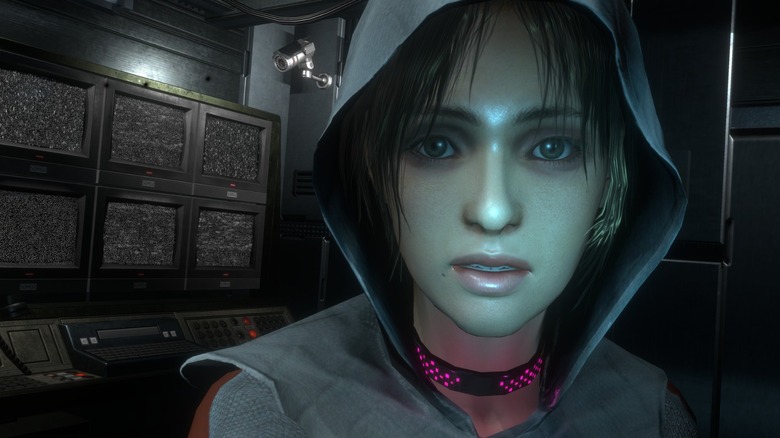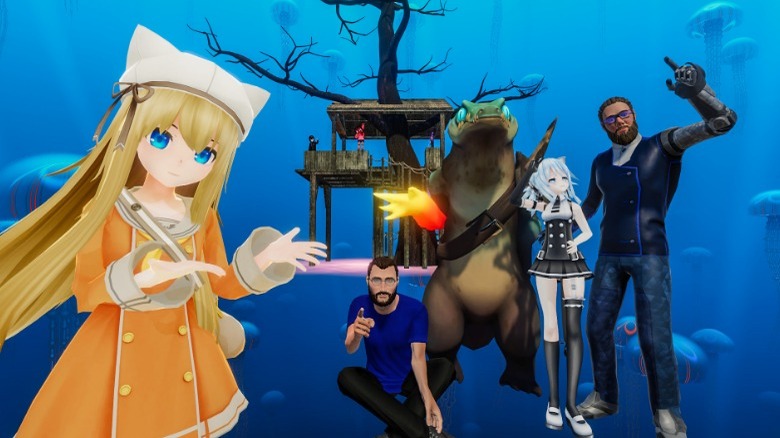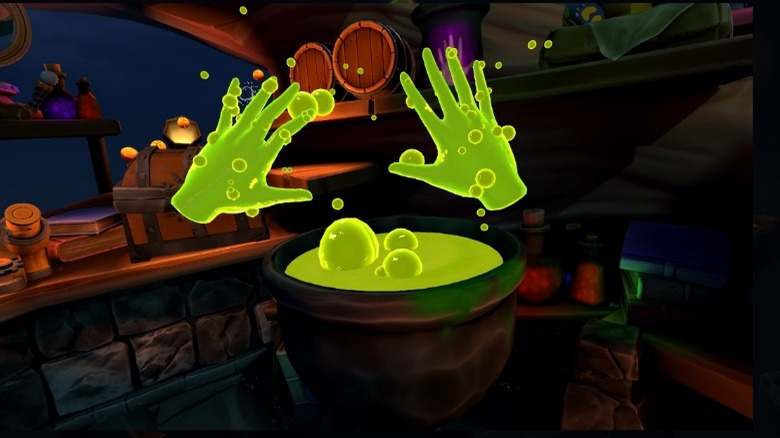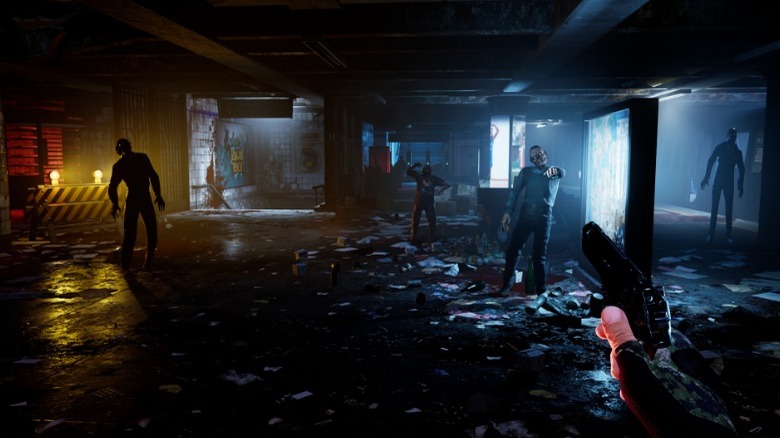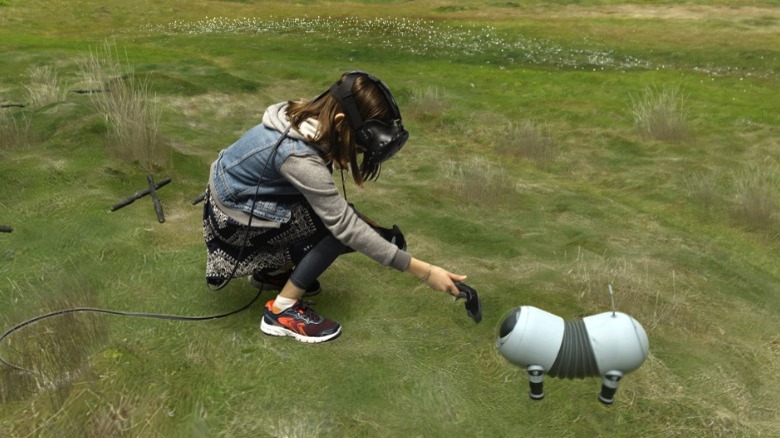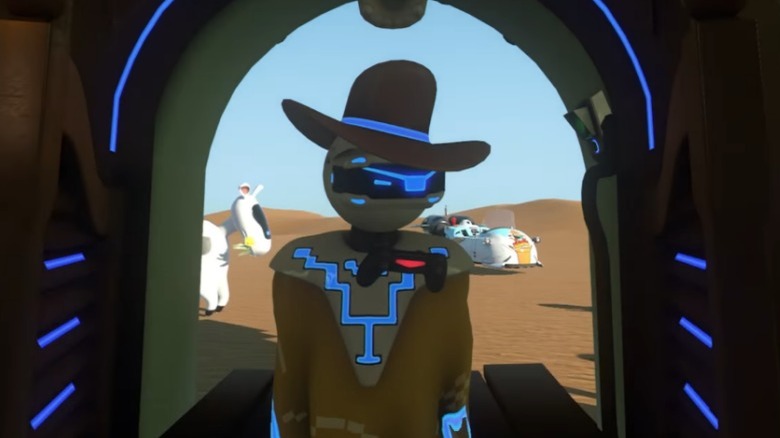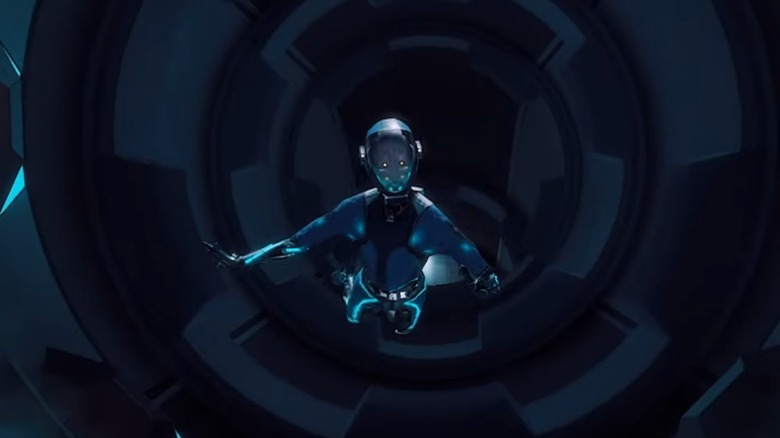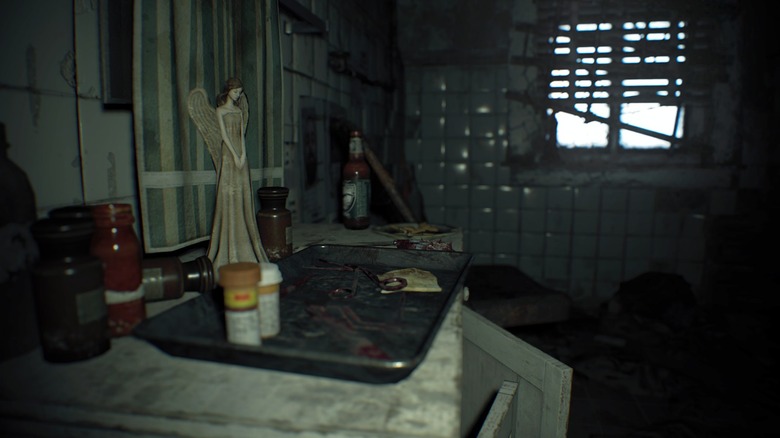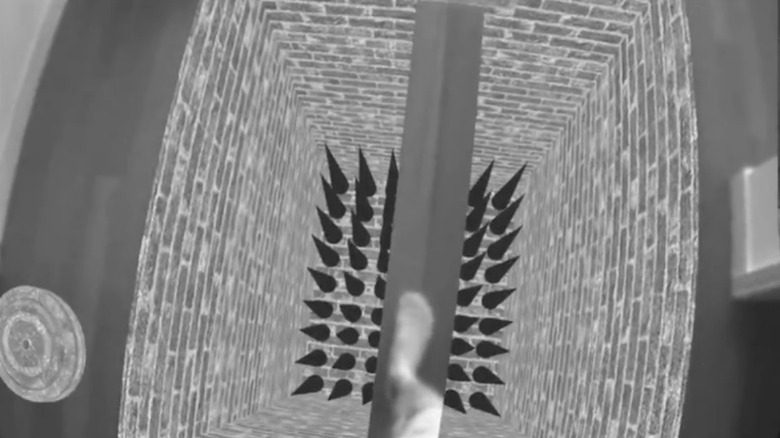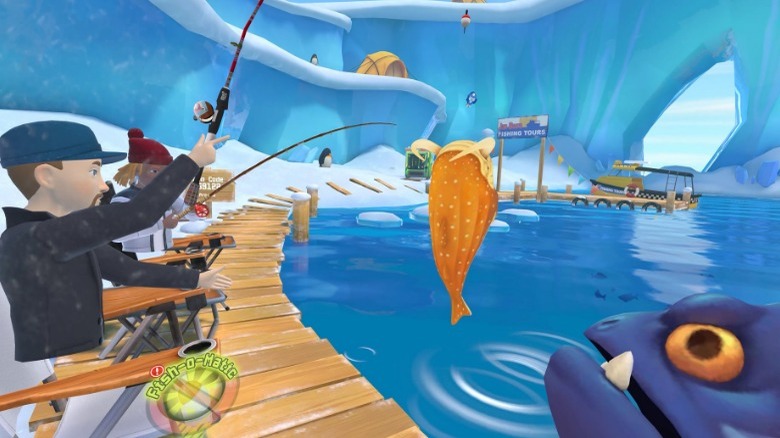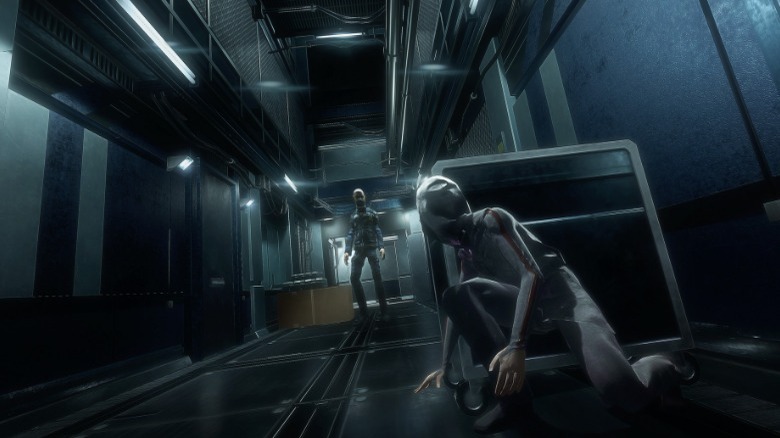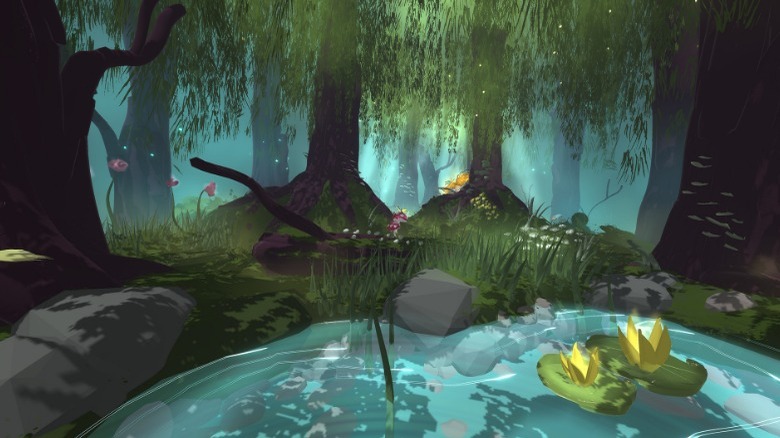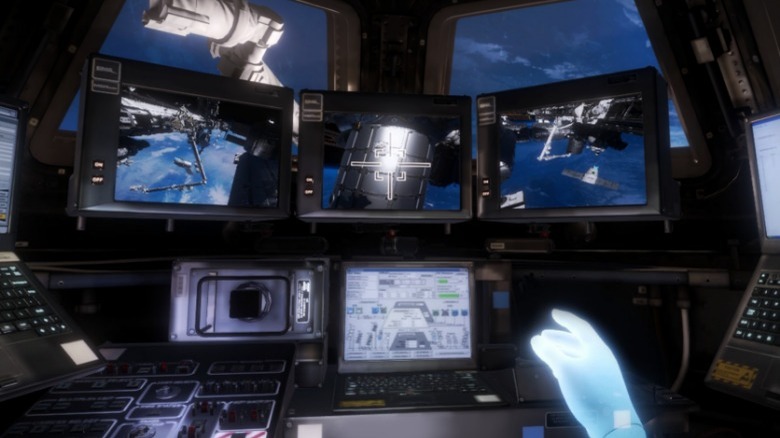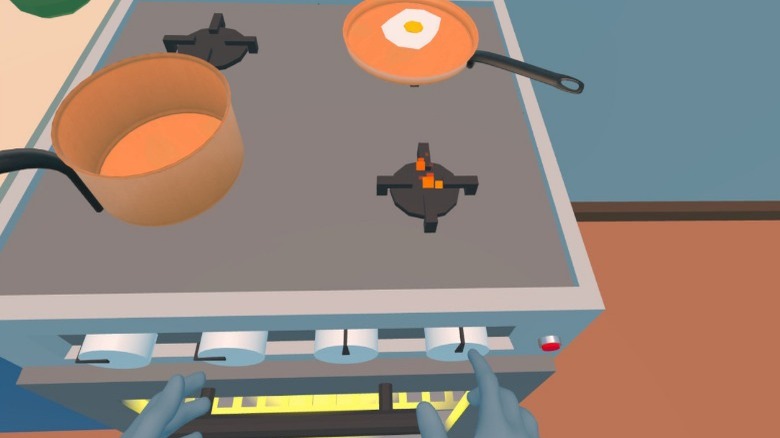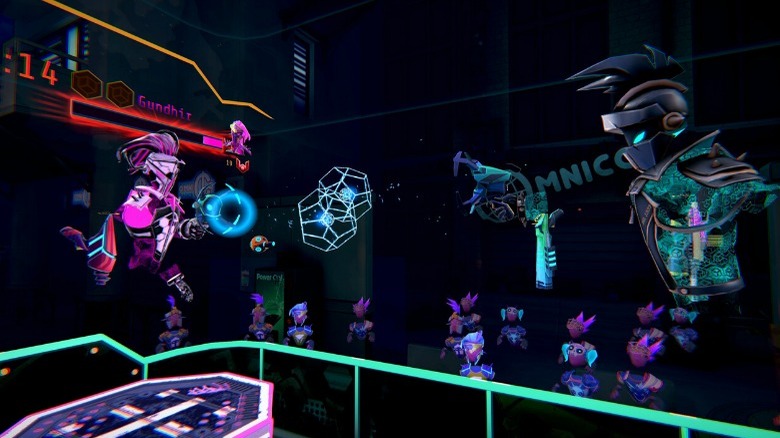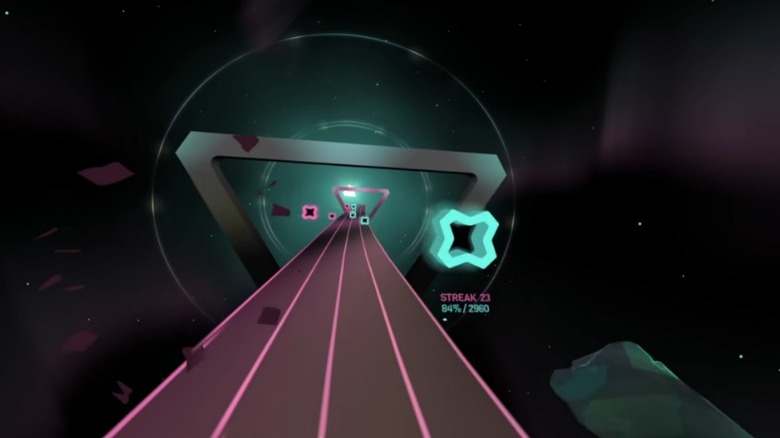The 15 Best Free VR Games You Can Get Right Now (March 2023)
Gaming is becoming more and more expensive. You will spend around $500 on modern consoles or at least $2,000 on a PC that can play the latest games at decent framerates and resolutions. And if you want to play a VR title, you will spend anywhere between $400 to $1,000 on a headset, in addition to whatever VR-capable graphics cards run these days. After all is said and done, you probably won't have much of a budget left for games. Or will you?
Many gamers know how to be frugal and look for deals on games — or buy them used — and it's hard to be more frugal than playing a free game (piracy notwithstanding). While the term "free-to-play game" has become a dirty phrase as of late thanks to filthy practices, plenty of free games out there are worth playing. And while most of these titles aren't VR-compatible, you can still find a handful of quality freebies you can use to break in your new VR headset before dropping cash on "Half-Life: Alyx" or "Beat Saber."
Whether you just purchased a VR kit or want something new to play without spending any money, here are some titles you might want to check out.
VRChat/Rec Room
The game "Second Life" is a popular 3D social experience where users can explore player-generated worlds, don custom skins, and just hang out with friends and strangers. The game is polished, but there's always room for improvement. Who could have guessed that would come with VR functionality?
"VRChat" and "Rec Room" are essentially "Second Life" 2.0. Both titles focus on the social aspects of VR and let players explore different 3D worlds, hang out with friends and total strangers, and even play other games within the game. The engines running "VRChat" and "Rec Room" are so robust that users have created entire games within these games, from horror mysteries to numerous "Beat Saber" clones.
Since "VRChat" and "Rec Room" are two takes on the same premise, how does one decide which to play? If you want a more social experience with a wider variety of avatars, go with "VRChat," but if you want a more game-centric title, try "Rec Room." Or you can use whatever is compatible with your headset. "VRChat" officially supports the HTC Vive, Oculus Rift and Quest, and Valve Index, whereas "Rec Room" also adds PSVR, mobile, and Xbox support. Also, while you can play "VRChat" and "Rec Room" without a VR headset, you won't get the full experience.
Elixir
Most VR titles require a controller of some kind, and admittedly most of these headsets include controllers. But wouldn't it be cool if you could play a VR title with just your hands? Well, dream no more.
"Elixir" is a fun and quirky experience that lets you take the role of a sorceress' apprentice who fools around with, well, elixirs to turn your hands into a variety of superpowered forms. The game is short and on rails, but the fun is watching your hands transform and using them to interact with the game environment in myriad ways. Not digital hands puppeted by controllers; your own hands turned into digital recreations. Every wave of the palm and curling of the finger is transcribed into "Elixir," and witnessing it in action is far more spellbinding than this article can describe. Better yet, since "Elixir" takes place in one room (i.e., is "roomscale"), the game is designed so you can wave your hands around as much as you want without accidentally bumping into physical objects.
Since "Elixir" utilizes hand tracking, it is only compatible with a small number of VR headsets, specifically Meta's Quest line of devices. While the game is meant for hand tracking, you can use the Quest's Touch Controllers if you want, but then you miss out on the game's best feature.
Propagation VR
Haunted houses are the ultimate horror experience. Unlike films or games, you can't pause or look away from the scares. VR horror games are the next best thing because while you can pause the experience, everywhere you look is part of the same haunted world.
"Propagation VR" is a survival horror title that plops you into a zombie-infested subway with only one goal: survival. The game is a wave-based shooter since enemies keep coming until you either succeed or die, and since "Propagation VR" is, well, a VR title, creatures can come from anywhere. You need to keep your head on a swivel if you want to live, which adds to the tension. It also helps that the game sports some jaw-dropping lighting and sound design on par with AAA titles such as the "Resident Evil" franchise.
The basic "Propagation VR" experience is free and compatible with Oculus, HTC Vive, Windows Mixed Reality, and Valve Index headsets, but audiences can play "Propagation VR" with a friend if they buy co-op DLC. The developers are expanding the "Propagation" world with a sequel, "Propagation: Paradise Hotel," later in 2023, but European gamers can already explore more of the "Propagation" zombie apocalypse with dedicated VR stations dotted throughout the continent.
The Lab/Nvidia VR Funhouse
Many video games revolve around a few concepts. Even the best titles favor quality over quantity, but then there are minigame collections. These titles focus on casting as wide a net as possible, sometimes to great effect.
"The Lab" and "Nvidia VR Funhouse" are two different takes on the minigame collection, albeit with different focuses. Valve's "The Lab" emphasizes roomscale experiences that let you test out different strengths of VR technology. This game includes mini adventures where you can pet a robot dog, defend a castle gate with a longbow, and explore the solar system. The "Nvidia VR Funhouse," meanwhile, is more about demonstrating how Nvidia graphics cards can power VR entertainment via game physics. The title, obviously, is a collection of novelty games that wouldn't be out of place in a local fairground. You can whack moles, pop balloons with swords, and shoot plates with guns. The result is nothing if not jaw-dropping.
Valve originally developed "The Lab" for the HTC Vive, while "Nvidia VR Funhouse" is compatible with both the Vive and Oculus Rift headsets. Unfortunately, because "Nvidia VR Funhouse" was designed to demonstrate different Nvidia GPU features, you can only play the game with specific Nvidia products; AMD cards are not supported.
The Playroom VR
When Nintendo released the Wii U, the company packed a copy of "Nintendo Land" into each console. Say what you will about the Wii U, but "Nintendo Land" did an excellent job of showcasing the console's capabilities. The PlayStation 4 doesn't have an equivalent title unless you own a PS VR.
"The Playroom VR" is a collection of party-based minigames, not unlike "Nintendo Land," but instead of focusing on an oversized tablet, "The Playroom VR" utilizes the PS VR. Some games pit the VR-wearer against fellow players who use the TV, while others make everyone team up to overcome wacky challenges. The games are short and don't overstay their welcome, but they also are replayable and let you experience the glorious and oft-forgotten magic of couch co-op.
As you have probably guessed, "The Playroom VR" is only compatible with the original PS VR, which means anyone who wants to play it on a PlayStation 5 needs the original PlayStation camera and the adapter. Since the game's breakout star, Astro Bot, has his own free game on the PS5, maybe Sony can eventually release an updated (and hopefully free) sequel to "The Playroom VR."
Echo VR
Free games are a double-edged sword. On one hand, quality free titles are exceedingly rare, but when you find one, oh boy, you will probably love it. And on the other hand, even if you find a good one, it probably won't stick around forever.
"Echo VR" is a fun and competitive game best described as zero-g ultimate frisbee. Each match takes place in a futuristic, neon arena you can float around, and victory is dependent on both teamwork and one's ability to ricochet the frisbee off walls. "Echo VR" is as fast as it is disorienting, but that's half the fun. Nobody knows which way is up, but everyone's trying to score and style on the opposition nonetheless.
The game is only available on Meta's Oculus Quest, Quest 2, and Quest Pro headsets, and only for a limited time. Last January, the studio Ready at Dawn decided to officially end all support for "Echo VR." Not only will the company no longer work on the title, but all servers will shut down August 1, 2023 at 10 a.m. PST. You now only have a few months to try out this gem of a competitive VR title, so make them count.
Resident Evil 7 Teaser: Beginning Hour
"Resident Evil 7: Biohazard" is a terrifyingly brilliant experience and one of the best "Resident Evil" entries to date. The idea to design this game as a first-person title was a stroke of brilliance, especially because Capcom eventually added VR functionality. The company's decision to release a free teaser also probably played a part in the game's success.
"Resident Evil 7 Teaser: Beginning Hour" is a free demi-demo designed to give you a taste of the horrors that would eventually surface in "RE7." While the teaser stars a different protagonist from the main game, it still has the same grimy and claustrophobic atmosphere, complete with a few scares bound to terrify players. Plus, like the main game, "RE7: Beginning Hour" was eventually updated with VR functionality, which only made the already scary free demo even more terrifying.
While the "RE7: Beginning Hour" demo (and by extension "RE7") is available on multiple platforms, only the PlayStation 4 version is compatible with VR headsets, specifically the PS VR. For whatever reason, the PS5 version of the retail "RE7" doesn't work with VR, but since the playable teaser only comes as a PS4 title, you don't have to worry about compatibility issues. You will still need a PS VR, adapter, and PlayStation Camera if you want to play it on the PS5, though.
Dungeon Maker
When you think of VR, your mind probably jumps to games that plop you into digital worlds completely separate from the real one, but that is only one kind of experience. Some VR games aren't fully virtual — but they utilize VR headsets so they still count.
"Dungeon Maker" isn't so much a VR game as it is an AR (augmented reality) adventure. As the title suggests, "Dungeon Maker" lets you craft your own trap-filled dungeons, but instead of creating them completely from scratch, you build them in your own house. "Dungeon Maker" superimposes medieval obstacles over the geometry of rooms, and as you or other players wander, you also have to dodge spike pits, guillotines, and more. It's the ultimate game of "the floor is lava."
Since "Dungeon Maker" combines the physical with the real, it only works with VR headsets that utilize external cameras, specifically the Meta Oculus Quest, Oculus Quest 2, and Quest Pro. Moreover, the game is still in development, so don't be surprised if new features or traps are added in the future.
Bait!
Fishing is an amazing pastime. You get to relax by a babbling brook or lackadaisical lake, take in nature, and if you're lucky, you get to have fresh fish for dinner. But fishing has its downsides. You need a ton of patience, a nearby body of water, and a license. If you have none of those, perhaps a fishing game is more your speed.
"Bait!" is exactly what it is advertised as: VR fishing. You can visit one of several angling locations, hang out with friends, and hook virtual fish as much as you please. However, not everyone finds a calm zen in fishing, but the developers of "Bait!" took that into consideration. If you aren't an angler, you can still enjoy the game by exploring a beautiful island resort full of social activities such as boat racing (the RC kind), skipping stones, and playing solitaire. Relaxation is the name of the game in "Bait!"
Since one feature of "Bait!" lets you don your Meta avatar in the game, the title is understandably meant for Meta's line of VR headsets, including the Oculus Quest, Quest 2, and Meta Quest Pro. While "Bait!" is a free game, it includes in-app purchases, so you should probably know that before giving the game a spin.
Republique VR
Porting is a big deal in the video game industry since it lets developers bring titles to platforms the games weren't originally designed for, which helps expand the game's audience. However, the process is rarely simple since it has to take into account different hardware architectures and software environments. But if developers can port a mobile game to VR, they can do anything.
"Republique VR" is a VR recreation of the stealth action/puzzle game "Republique," previously only available on mobile devices and consoles. As with the original, the game is all about helping a woman, Hope, escape a futuristic dystopia controlled by a totalitarian state. You don't control Hope so much as you view her through surveillance cameras and tell her where to go and what to do, as well as unlock doors and distract enemies for her. "Republique VR" lets you watch the action through a headset and control the game with VR controllers, but the port isn't just a one-to-one remake. The VR version also adds new challenges and collectibles, and it is also arguably one of the best ways to play.
As of this writing, "Republique VR" is available for SteamVR, Meta Quest, and Oculus Rift headsets, but the developer is also planning to release a PSVR version. Here's hoping it is available by the time you read this article and is free as the others.
Gravity Sketch/Open Brush
Art is subjective. No two people have the same opinion of a work. Some are more invested in paintings, while others prioritize sculptures. The only objective constant about art is that anyone can give it a shot, especially if they have the right tools.
"Gravity Sketch" and "Open Brush" are two different free apps you can use with your VR headsets. Both let you build 3D models freehand with VR controllers and then present them to willing audiences. However, these apps cater to widely disparate users. "Gravity Sketch" is more of a professional platform that focuses on creating CAD models for the workplace. Sure, you can use the program to develop the latest concept models for your job, but you can also use "Gravity Sketch" to mess around. "Open Brush," meanwhile, is purely focused on the arts. The program lets you paint in an open space and then combine that paint with other paints to create 3D dioramas, sculptures, and even locations. And yes, people can walk around your work, and you can walk around theirs.
While "Gravity Sketch" and "Open Brush" don't have too much of an audience overlap, they are available on mostly the same platforms, specifically the Oculus Quest and whatever headsets Steam supports. However, "Gravity Sketch" is also available on Apple VR, while "Open Brush" supports the HTC Vive instead.
Mission ISS/Google Earth VR
Most video games and apps have an end goal in mind, which can include shooting zombies, escaping soldiers, and hanging out with friends. However, sometimes it's the journey, not the destination, that makes a game worthwhile, especially if there is no destination other than one you set for yourself.
"Mission ISS" and "Google Earth VR" are two different examples of VR apps that are all about exploration. "Mission ISS," as its name suggests, stars a one-to-one scale digital recreation of the International Space Station. You can explore the space station inside and out, learn what it takes to live in a zero-g environment, and even watch videos narrated by real NASA astronauts. "Google Earth VR," meanwhile, is exactly what it sounds like: Google Earth for VR headsets. You can fly around the globe, see landmarks from a whole new perspective, and visit locations that would otherwise require expensive vacation budgets and plane tickets. The sheer majesty of scale is bound to leave most players speechless.
While "Mission ISS" is a spectacular title, it is only available for the Meta Oculus Quest, Quest 2, and Quest Pro headsets. Meanwhile, Google Earth is slightly more open, as it works on both Oculus Quest and HTC Vive devices.
Language Lab
What is the best way to learn a new language? Some people say gamifying the process helps, and what better way to do that than with a free immersive app?
"Language Lab" is a teaching tool that lets you explore an expansive environment and learn languages essentially by doing. The more you interact with the game world, the more you learn words and phrases in different languages. "Language Lab" already has plenty of lessons and languages available — including Spanish, Chinese, German, and Italian — and the developers are constantly adding new lessons and languages. Moreover, the developers have partnered with schools across the globe, and many students with access to VR labs are already using the game for learning.
You can try "Language Lab" if you own a Meta Quest headset, but the game is also available through Steam. However, despite all of its uses, "Language Lab" is considered an Early Access title and isn't as robust as other language learning tools, but that is why the developers are constantly updating the game. Plus, even though you can play "Language Lab" while sitting down, you can't use a keyboard and mouse; controllers are the only way to play.
Blaston
The sad fact of free-to-play games is usually the best ones were never free to begin with. While many gamers mock a title when it drops its pay-to-play model and goes freemium, this change still gives more players a chance to experience the game without burning a hole in their wallets. Plus, we can't exactly talk about games you have to pay for on a list about free titles, now can we?
"Blaston" is a fun, competitive FPS game. The goal of each match is to overwhelm your opponent with a hail of bullets while dodging their shots. "Blaston" encourages players to stay moving so much that each session essentially gives you a workout. As previously stated, "Blaston" launched as a paid title, but it went free-to-play at the end of December 2022. Since "Blaston" is technically a live service game, its developers are constantly updating the experience with new cosmetics and weapons.
Originally, "Blaston" was available through the Meta Quest and Steam digital storefronts, but as of 2023, the developers also added support for Pico devices. Moreover, you don't even need a VR headset to enjoy the bullet hell fun of "Blaston," just to participate. PC gamers can download a standalone spectator app (also free) if they only want to watch blaster masters go at one another live.
Moon Rider
"Beat Saber" is impossibly popular, but what else would you expect from a game that lets you swing digital lightsabers and destroy VR blocks to the beat of your favorite songs? Unfortunately, not everyone wants to spend $30 on a rhythm game — plus $290.54 if you want all the DLC. That's where alternatives come in, and not just the "VRChat" recreations.
"Moon Rider" is, at its core, a free version of "Beat Saber." Like its inspiration, you have to slash colored blocks with the correct colored sword. The challenge is as lax or intense as you want and depends on the accompanying song. So what sets "Moon Rider" apart from "Beat Saber" aside from the price? "Moon Rider" is open source, so users can add whatever songs they want and customize the courses as they please. Want to destroy blocks to "DOOM" music? Walk the Moon's "Shut up and Dance" song? The first "Attack on Titan" opening theme? It's all there and more.
Unlike most VR titles, "Moon Rider" isn't a game but a web-based app, so you don't need to install anything; just visit the app's site, strap on your headset of choice, and start riding the music waves. Or you can just use "Moon Rider" as a music player and listen to songs in the background without VR.
